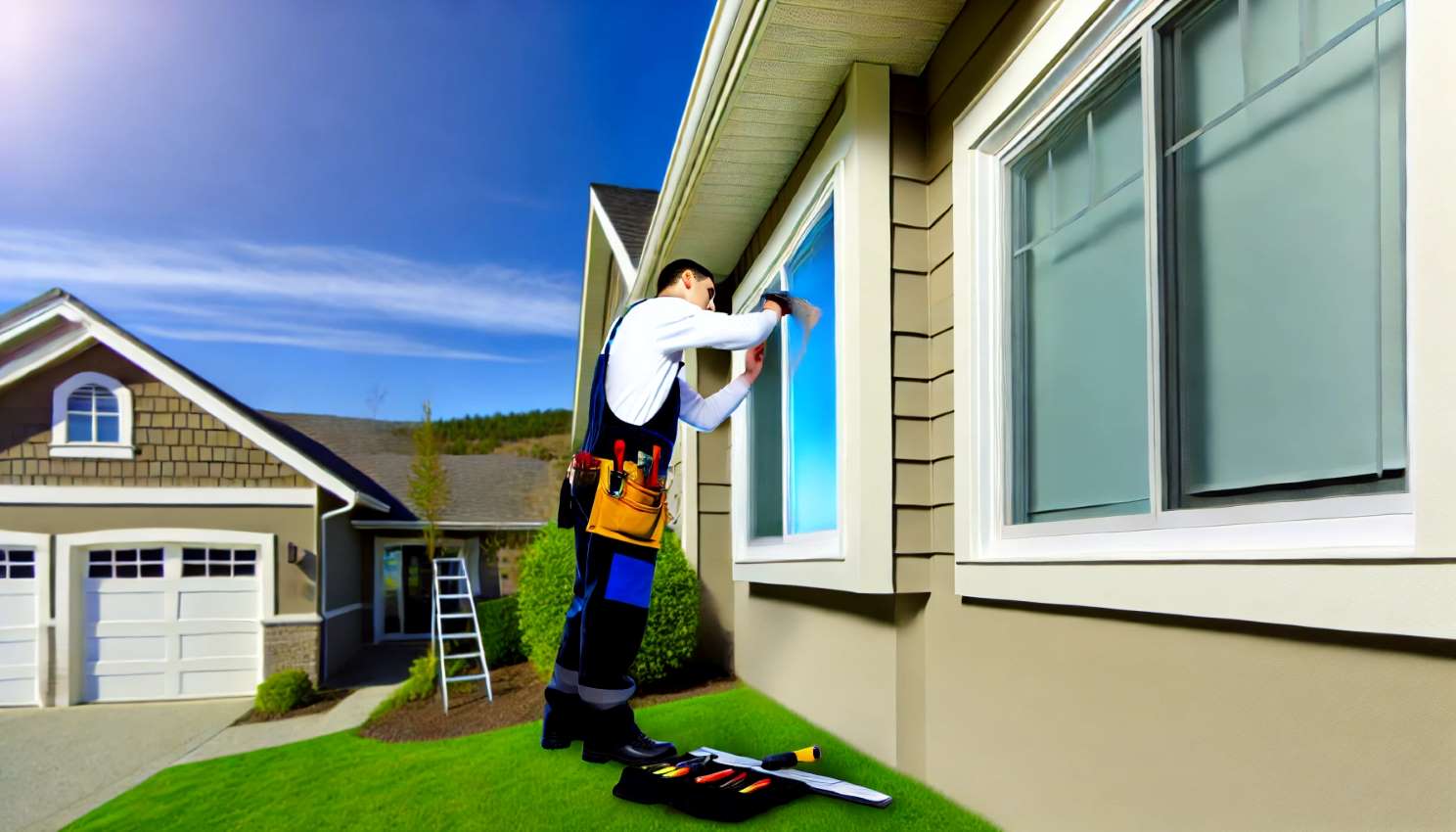Window Replacement: A Homeowner’s Guide
Windows play a crucial role in your home’s aesthetics, energy efficiency, and overall comfort. As they age, replacing them becomes necessary to maintain these benefits. This homeowner’s guide will explore the ins and outs of window replacement, helping you make informed decisions for your home improvement project.
Benefits of Window Replacement
Replacing your old windows can offer numerous advantages:
Improved Energy Efficiency: Modern windows are designed with advanced insulation technologies, helping to reduce heat transfer and lower your energy bills.
Enhanced Home Value: New windows can significantly boost your property’s curb appeal and market value.
Increased Comfort: Say goodbye to drafts and cold spots near windows. Replacement windows provide better temperature regulation throughout your home.
Noise Reduction: Many new windows offer superior soundproofing, creating a quieter indoor environment.
UV Protection: Advanced glass coatings can block harmful UV rays, protecting your furniture and flooring from fading.
Easy Maintenance: New windows often feature tilt-in designs for effortless cleaning and require less upkeep than older models.
Types of Replacement Windows
When choosing replacement windows, you’ll encounter various styles to suit different needs and preferences:
Double-Hung Windows: These classic windows have two vertically sliding sashes, offering excellent ventilation and easy cleaning.
Casement Windows: Hinged on one side, these windows open outward like a door, providing maximum airflow.
Sliding Windows: Perfect for wider openings, these windows slide horizontally and are easy to operate.
Bay or Bow Windows: These windows project outward from the wall, creating additional interior space and a panoramic view.
Picture Windows: Fixed windows that don’t open, ideal for unobstructed views and maximizing natural light.
Awning Windows: Hinged at the top and opening outward, these windows are great for ventilation even during light rain.
Window Frame Materials
The material you choose for your window frames can impact durability, maintenance, and energy efficiency:
Vinyl: Affordable, low-maintenance, and energy-efficient, vinyl frames are a popular choice for many homeowners.
Wood: Offering classic beauty and excellent insulation, wood frames require more maintenance but can last for decades if properly cared for.
Fiberglass: Extremely durable and energy-efficient, fiberglass frames can mimic the look of wood without the maintenance.
Aluminum: Lightweight and strong, aluminum frames are ideal for modern architectural styles but may not be as energy-efficient as other options.
Composite: Combining the strength of wood with the low maintenance of vinyl, composite frames offer the best of both worlds.
Energy Efficiency Features
Look for these features to maximize your windows’ energy efficiency:
Low-E Glass: This special coating reflects heat while allowing light to pass through, improving insulation.
Double or Triple Panes: Multiple panes of glass with insulating gas between them provide superior thermal performance.
Warm Edge Spacers: These separate the panes of glass and reduce heat transfer around the window’s edge.
Weather Stripping: High-quality weather stripping prevents air leakage around the window frame.
Window Replacement Process
Understanding the replacement process can help you prepare for your project:
- Consultation and Measurement: A professional will assess your current windows and take precise measurements.
- Choosing Windows: Select the style, material, and features that best suit your needs and budget.
- Ordering: Custom windows are ordered based on your specifications.
- Preparation: The area around your existing windows is prepared for removal.
- Installation: Old windows are removed, and new ones are carefully installed and sealed.
- Finishing Touches: Any necessary trim work or touch-ups are completed.
- Inspection: A final check ensures proper installation and operation.
Choosing a Window Replacement Contractor
Selecting the right contractor is crucial for a successful window replacement project:
- Look for licensed and insured professionals with a solid reputation.
- Ask for references and check online reviews.
- Get multiple quotes to compare prices and services.
- Ensure they offer warranties on both products and installation.
DIY vs. Professional Installation
While DIY installation may seem tempting, professional installation is often the best choice:
Benefits of Professional Installation:
- Expertise in proper fitting and sealing
- Access to high-quality materials and tools
- Warranty protection
- Time and stress savings
When DIY Might Work:
- For simple replacements in standard sizes
- If you have experience with home improvement projects
- When working with readily available, off-the-shelf windows
Maintenance Tips for New Windows
To keep your new windows in top condition:
- Clean frames and glass regularly with mild soap and water.
- Lubricate moving parts annually.
- Inspect weather stripping and seals periodically.
- Address any issues promptly to prevent further damage.
Conclusion
Window replacement is a significant investment in your home’s comfort, efficiency, and value. By understanding your options and the replacement process, you can make informed decisions that will benefit your home for years to come. Whatever your goal is, new windows can help you achieve them.

